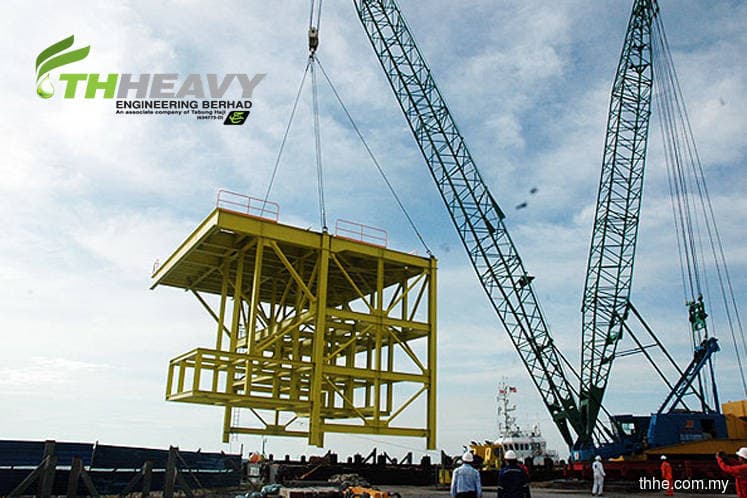
KUALA LUMPUR (Feb 15): TH Heavy Engineering Bhd (THHE) sees itself a step closer towards resolving its financial difficulties, as its plan to novate its contract with JX Nippon Oil & Gas Exploration (M) Ltd makes progress.
THHE today secured 100% approval from its shareholders to novate the floating, production, storage, offloading (FPSO) facility charter contract with JX Nippon at the Layang gas field in Bintulu, to Yinson Holdings Bhd for RM374 million.
“We would like to thank the shareholders for their unwavering support,” THHE chief executive officer Suhaimi Badrul Jamil told reporters after the group's extraordinary general meeting today.
The contract novation is a critical component in THHE’s scheme of arrangement (SoA) with its creditors. Earlier in December, its creditors also approved a debt haircut to the tune of RM406.4 million under the SoA, which shrank THHE's settlement to RM564 million from RM970.4 million previously.
THHE will use 94.33% or RM352.8 million from the proceeds of the novation agreement to pay its scheme creditors, which will reduce the outstanding settlement sum to RM211.2 million.
The company has identified non-utilised assets like cranes and other equipments for disposal, which would bring in another RM12 million or so, subject to valuation, Suhaimi said.
THHE also has the option to raise funds by selling its 80%-owned Layang FPSO vessel, which future is still up in the air.
Acquired in 2011 for US$82.5 million, FPSO Layang — now dry-docked in Dubai with a monthly overhead cost of some RM2 million — would have cost US$230 million for a full conversion. Its conversion progress was at 43% as at Jan 2018.
Presently, the FPSO’s fair market value — in the region of between US$18 million to US$23 million — is a bargain for interested buyers. Its scrap value is between US$10 million to US$15 million (RM44.9 million-RM67.3 million).
While Yinson has the financial capacity to acquire FPSO Layang and continue the conversion process, no such plan was included in the terms of the novation agreement.
Meanwhile, Globalmariner Offshore Services Sdn Bhd (GMOS), a scheme creditor under the SoA who owns the remaining 20% in FPSO Layang, may incur an impairment loss of some RM144.15 million, should the FPSO be sold at scrap value.
GMOS has appealed to the High Court to prevent the novation agreement from going through. The appeal was dismissed on Feb 12.
“We are aware about the court cases [with Globalmariner]. We will leave it to the court to decide,” said THHE chairman Datuk Johan Abdullah. “Today, we are focused on the timeline to get the proposed novation implemented.”
Fabrication out, shipbuilding in
With THHE’s fabrication yard in Pulau Indah still being blacklisted by Petronas, Suhaimi said it will look for opportunities under the segment overseas, with India and Middle East being target markets.
“We would like to somehow slowly move away from the fabrication business locally, with the overcapacity in the local market,” he said, though he maintained the location of its fabrication yard is lucrative for clients in other segments.
The bigger intention he said is to focus more on shipbuilding and turn that into THHE’s core business, moving forward. The firm secured its maiden shipbuilding contract in July last year to supply three offshore patrol vessels to the Malaysian Maritime Enforcement Agency (MMEA) for RM738.9 million.
“We have started the physical work at our [Pulau Indah] yard in December last year,” Suhaimi said, assuring the firm is on-track to deliver the OPVs on time, i.e. by mid-2021.
“Our next phase is of course to complete the regularisation process, one of it involving the issue of new shares, pending Bursa [Malaysia’s] approval. “We hope to be on track to regain our footing and get out of PN17 [status],” he said.
With another possible cash call looming in the horizon, long-time shareholders may need to wait a while longer to recoup its losses — if the market environment favours the oil and gas outfit. The counter last traded at 9 sen, a long way from its 2014-high of RM1.01 per share.